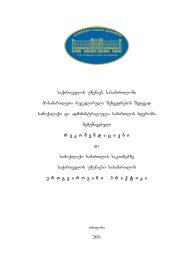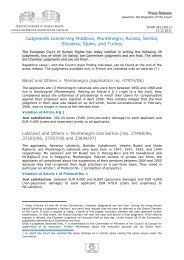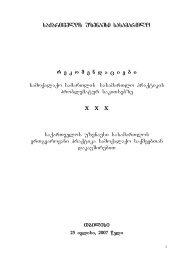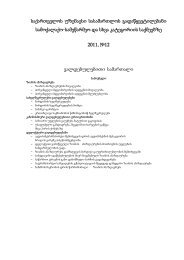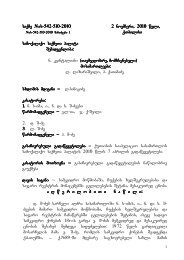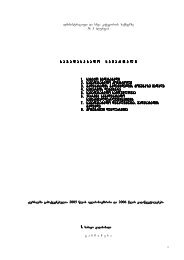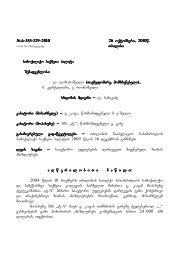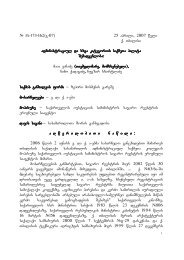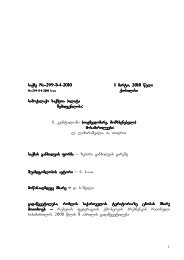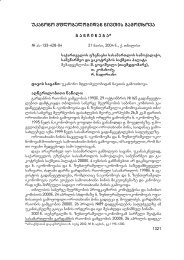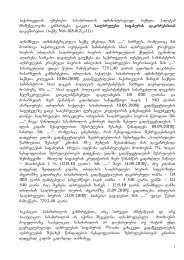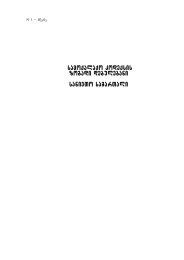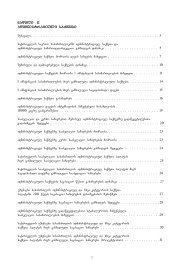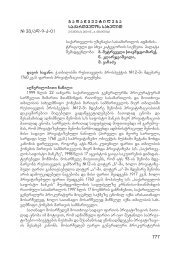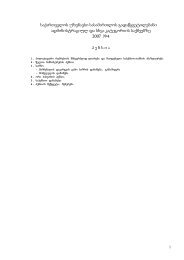marTlmsajuleba kanoni
marTlmsajuleba kanoni
marTlmsajuleba kanoni
Create successful ePaper yourself
Turn your PDF publications into a flip-book with our unique Google optimized e-Paper software.
Modern Approaches<br />
to Define Criminality<br />
MIKHEIL GABUNIA<br />
PhD Student at Law Department Humanitarian and Social Faculty<br />
of Georgian technical University<br />
In view of the requirements of the Constitution of Georgia, for establishing<br />
a democratic system, political and economic freedom, and for raising<br />
the level of the legal culture and morale of the population, and for reinforcing<br />
the moral norms that have developed in Georgia over the centuries, the<br />
development of the field of criminology is of utmost importance. The most<br />
essential concept in this field is criminology, the correct definition and exploration<br />
of which is a key objective for the scientists. The goal of the<br />
science of criminology, which is to provide social control on criminality,<br />
clearly depends on the correct definition of criminology as a concept. Besides,<br />
as the phenomenon of criminality has not been established yet, considering<br />
the criminality as a separate legal science is questioned. As it is<br />
mentioned in the article, in a number of western countries the criminology<br />
is considered not a legal but a social science which is linked to the new<br />
understanding of this complex phenomenon of criminality.<br />
At this stage, based on the researches we have carried out, as it was mentioned<br />
above, we can infer that criminality is a phenomenon which is characterized<br />
by the unity of two most significant criteria of definability and<br />
un-definability. Specifically, it consists of a set of actions known as a crime<br />
and which are envisaged by the Criminal Code and of such immoral acts<br />
which pose increased threats for the community (such as, drugs abuse,<br />
prostitution, alcoholism, and suicides). The latter represents a key, fundamental<br />
criterion. In this case we can accept the assumption that criminology<br />
is a science of crimes and especially of dangerous immoral acts and<br />
their cognizance, and not that of any other social phenomenon, make its<br />
meaning; as for the un-definability, it starts where the scope of normalized<br />
concepts finish and the science of criminality aspires to more deeply<br />
perceive the regularities of criminality and determine the peculiarities of<br />
exercising social control on it and thus the science has to employ concepts,<br />
categories, empirical data available in the related sciences such as<br />
jurisprudence, sociology, philosophy, psychology, and deviantology; we<br />
consider that there is no and cannot be clear boundaries among them.<br />
53



